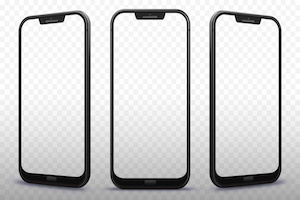An online car-sharing service called Turo allows car owners to rent out their cars to others. The company, based in San Francisco, advertises that its customers can skip the line at car rental services by asking the owner to deliver the car to an airport or hotel.
The City of Los Angeles views Turo as a car rental service. It believes that Turo should pay the same fee that Hertz, Avis, and other car rental companies pay to conduct business at the Los Angeles International Airport (LAX). It asked Turo to enter into an agreement to operate an airport concession, as do off-airport rental companies that arriving passengers typically access through shuttle services.
Unlike traditional car rental businesses, Turo does not have a counter in the airport or a shuttle service that transports arriving passengers to a nearby rental facility. Turo argues that it is not a rental company. It views itself as a technology company that provides an app to connect rental customers to private owners.
Lacking a physical presence at LAX, Turo maintains that it is not subject to the regulations that require rental companies doing business at LAX to enter into a concession agreement. Turo sued the city in federal court seeking a declaration that the city cannot enforce its regulations against Turo.
The city counterclaimed and asked the judge to enter an injunction to prevent Turo from delivering cars to LAX while the lawsuit was pending. Turo responded with expert testimony to establish that its car deliveries were not causing any harm to LAX.
Notwithstanding the expert testimony, the district court judge entered an injunction against Turo. On appeal, the Ninth Circuit faulted the judge for cherry-picking the expert opinions.
Preliminary Injunction Standard
A preliminary injunction is a court order that typically prohibits a party from engaging in specified conduct until a lawsuit has been decided. To obtain a preliminary injunction in federal court, a party must prove that (1) the party seeking the injunction will probably win the lawsuit, (2) the party seeking the injunction will be irreparably damaged if the injunction is not granted, (3) granting the injunction is more fair to the party seeking it than it is unfair to the party opposing it, and (4) the injunction would serve the public interest.
The city asked for an injunction against Turo to prevent Turo from allowing car owners to deliver cars to LAX while the lawsuit was pending. The key issue was whether LAX was being irreparably harmed by the delivery of cars on airport premises.
The judge found that traffic in LAX is congested, a finding that comes as no surprise to anyone who has ever driven into LAX. The judge also found that congestion worsened after the city began a construction project to modernize the airport. That project reduced the number of available traffic lanes within the central terminal area.
To reduce congestion, the city requires arriving passengers at LAX to take a shuttle to a remote area to access ground transportation, including taxis, ride-sharing services, and rental cars. The city argued that Turo deliveries interfere with its efforts to reduce congestion.
Evidence Supporting Injunction
The district court decided that the city would probably prevail in its claim that Turo was trespassing by conducting unauthorized business at LAX. It was also satisfied that Turo’s continuing conduct of business was causing irreparable harm to the city by contributing to traffic congestion.
The court noted the conclusory nature of the city’s assertion that Turo vehicle deliveries aggravate traffic congestion. Turo’s expert witnesses pointed out that, on average, only 127 vehicles are handed off daily at LAX. The court used that expert opinion against Turo, finding that Turo’s “own declarations demonstrate that their operations are in fact specifically impacted traffic flow at LAX — at least to some degree.” Since an award of damages cannot lessen traffic flow, the court concluded that the vehicle deliveries constituted an irreparable harm.
Appellate Analysis
Notably, Turo’s experts provided the only factual foundation for the district court’s finding of irreparable harm. The city’s own evidence that Turo had an impact on traffic flow amounted to little more than conjecture.
The Court of Appeals for the Ninth Circuit faulted the district court for taking the expert opinions out of context. While the experts pointed out that 127 cars are delivered to LAX daily, the experts compared those deliveries to the volume of daily traffic at LAX. Other transportation companies, including Uber and Lyft, taxis, and limousine services, made more than 30,000 daily pickups and deliveries at LAX. Counting private drivers who pass through LAX, often to drop off or pick up passengers, about 100,000 vehicles pass through the central terminal every day.
Turo’s experts expressed the opinion that Turo’s contribution to traffic congestion was “unnoticeable” in the overall volume of terminal traffic. Those expert opinions were unrefuted. The district court’s cherry-picking of the opinions ignored the opinions as a whole, and those opinions did not establish that LAX would be irreparably harmed if Turo’s operations were not enjoined. The court of appeals therefore reversed the preliminary injunction.




